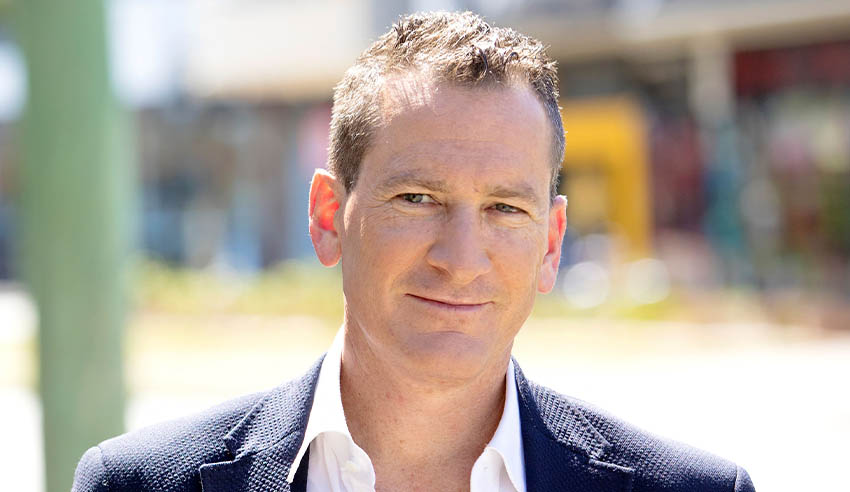When it comes to proceeding with a suitable business model post-pandemic, business owners need to ensure affordability for clients in order to achieve sustainability. It’s why Travis Schultz’s firm prices its services 40 per cent lower than bigger practices.

Speaking recently on The Boutique Lawyer Show, Travis Schultz & Partners managing partner Travis Schultz said that SME firm owners need to constantly evaluate what they’re trying to achieve – something that is particularly pertinent as the new normal approaches.
“But if your vision is to create something which is sustainable, which will endure, which gives career paths for your human capital, provides opportunities for those who are your loyal and long-suffering, to share in equity, to have a career path, to achieve their career goals, then you’ve got to think differently.”
Too often, Mr Schultz mused, the legal profession applies the standards of the past when it comes to firm profitability and time costing.
“Why do we have to time cost? Why do we have to time record? Why do we have to use a six-minute unit? Why are we slaves to a time sheet? I just don’t agree with that at all. But that’s the way it’s always been. And I think sometimes we, as a profession, being very conservative by nature, tend to revert to the past, revert to the tried and trusted rather than take risks with something new and innovative,” he outlined.
The time has come, he surmised, to “tear up” those rules.
“I think it’s time that we take a more holistic look, consider the big picture, rewrite the rules, and be prepared to innovate and to take a wholesale shift in our strategic direction,” he said.
For Mr Schultz and his firm, this has meant pricing its services in ways that ensure that sustainability is foremost.
“There are smaller practices with exceptionally good practitioners who had a really good service offering, but they often price themselves in the same way as the big corporates. So, we thought that the gap is for a firm which really wants to focus on the quality of law and trying to position itself at that kind of leading edge of the profession, so to speak, but at the same time, only charging on a court scale, not using time costing, not charging any of the usual uplift fees, finding ways to fund outlays for clients without that being borne by them, avoiding litigation funding, keeping the cost right down,” he explained.
“We decided that setting a fee structure that was about 40 per cent lower than some of the corporates, yet offering a very personalised service where you had accredited specialists in personal injury law handling matters for clients...it was an irresistible proposition in the sense that while they’re getting the best possible service, and they’re only paying a fraction of what it might cost elsewhere, it really removes barriers to engagement.”
What was essential for his firm, Mr Schultz continued, was guaranteeing sustainability, because in his practice area of personal injury, “the single biggest barrier to success and to scale is the inflow of new instructions”, he said.
“It’s highly competitive. The number of new clients who are in that pond of possible new clients is defined at any point in time. You can’t increase demand like you can if you’re selling widgets. So, there’s only so many potential new clients out there at any one point in time,” he argued.
“So, to us, in creating that unique value proposition which we tried to make irresistible, it has meant that it’s not the most highly profitable practice you’ll find. And the bean counters and the accountants scratch their heads and go, ‘You’re nuts. Why aren’t you charging as much as you can?’ But the reality is that it has given us sustainability.
“It has given us confidence that we are going to continue to have the inflow of instructions that are going to keep us all engaged and employed. And we can move forwards knowing that we may not be the most profitable practice and our gross margins might not be what the accountants like to see, but we are well supported.”
His firm is therefore comfortable, he deduced, given that they’re operating within their values and in line with what they believe should be the priorities for practitioners.
“We’re doing it in a way that we engage genuinely with a community and it feels good. We’ve got a happy team and, in less than three years, we’re at a point where I think we’re fast approaching 30 people and filling a building of 660 square meters of space,” he said.
“It comes with its pros and cons, but for us, it was about finding a gap in the market, critically analysing our values, and then just making sure that we live those.”
In the same episode, Mr Schultz outlined non-negotiable steps that boutiques must take to ensure their businesses do not fall over.
To listen to the full conversation with Travis Schultz, click below:

Jerome Doraisamy is the managing editor of professional services (including Lawyers Weekly, HR Leader, Accountants Daily, and Accounting Times). He is also the author of The Wellness Doctrines book series, an admitted solicitor in New South Wales, and a board director of the Minds Count Foundation.
You can email Jerome at: